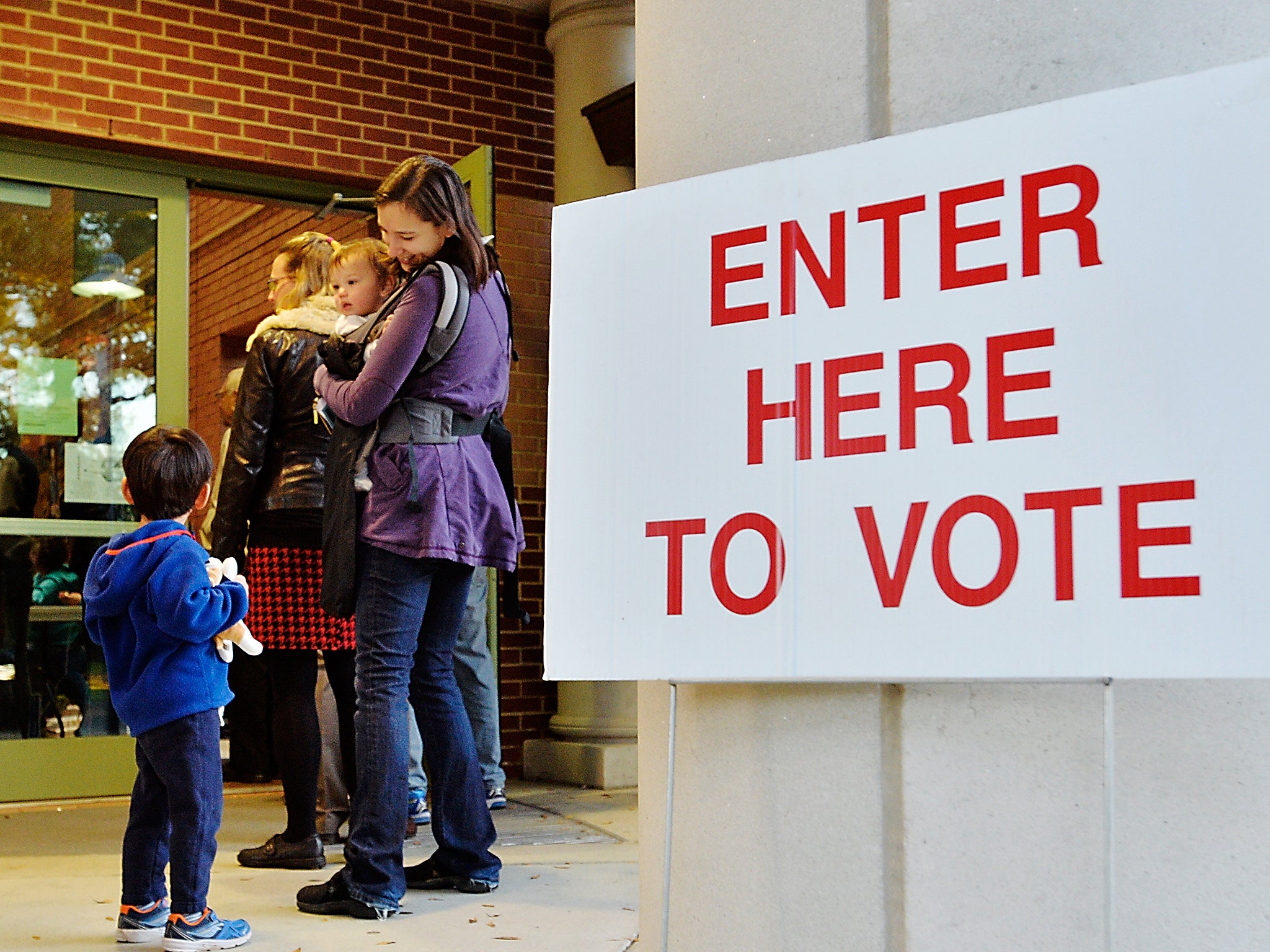America falls short of being a full democracy for second year running, report finds
Declining trust in public institutions fuels democratic decline

Your support helps us to tell the story
From reproductive rights to climate change to Big Tech, The Independent is on the ground when the story is developing. Whether it's investigating the financials of Elon Musk's pro-Trump PAC or producing our latest documentary, 'The A Word', which shines a light on the American women fighting for reproductive rights, we know how important it is to parse out the facts from the messaging.
At such a critical moment in US history, we need reporters on the ground. Your donation allows us to keep sending journalists to speak to both sides of the story.
The Independent is trusted by Americans across the entire political spectrum. And unlike many other quality news outlets, we choose not to lock Americans out of our reporting and analysis with paywalls. We believe quality journalism should be available to everyone, paid for by those who can afford it.
Your support makes all the difference.The United States has been classed as a “flawed democracy”, falling short of the threshold of a fully democratic society for the second year running, according to a comprehensive new report.
The Economist Intelligence Unit (EIU) produces an annual review ranking countries on their adherence to 60 distinct democratic values, including electoral processes and press freedom.
The US scored of 7.98 out of 10 last year, dropping into the flawed democracy category for the first time. The change reflected what the report said was “a sharp fall in popular confidence in the functioning of public institutions”. This predated and aided the election of Donald Trump, according to the think-tank.
The US scored 7.98 again in 2017, placing it behind 19 full democracies including Norway, Ireland, the UK, Uruguay and Spain.
Now ranking 21st, the US was among other countries with flawed democratic systems including Italy, South Korea, France, Chile, Botswana and Mexico.
It was at risk of sliding still further towards authoritarianism, the report claimed.
“If Mr Trump is unable to reverse the trend towards increasing social polarisation, US democracy will be at greater risk of further deterioration, especially given the interplay of this trend with other, long-standing drivers of democratic decline. For example, the US scores comparatively poorly in the democracy index in the functioning of government category,” the report said.
The manner in which US congressional districts had been redrawn in recent years had polarised the political landscape, it claimed.
“As a result, members of Congress fear a challenge in their party primaries, which are controlled by the party base, and are consequently incentivised to move to the right (for Republicans) or to the left (for Democrats).
“The upshot is a stronger emphasis on ideological purity and less appetite for compromise, which reinforces existing cynicism among voters about the workings of Congress.”
Meanwhile, major political events such as the Iraq wars, the financial crisis of 2008/09 and repeated federal government shutdowns had had eroded confidence in government over decades, according to the report.
A growing wealth divide was further fuelling public dissatisfaction with the government, the report said.
The EIU, which is part of the same company as The Economist magazine, predicted Mr Trump’s tax bill, which favours those on high incomes, would further fuel income inequality.
The US’ poor democracy rating comes amid a global regression of democratic principles, the report said, with the average score sliding from 5.52 in 2016 to 5.48 last year.
Some 89 countries experienced a decline in their total score compared with 2016, more than three times as many as the countries that recorded an improvement.
This was the worst performance since 2010/11 in the aftermath of the global financial crash.
Join our commenting forum
Join thought-provoking conversations, follow other Independent readers and see their replies
Comments